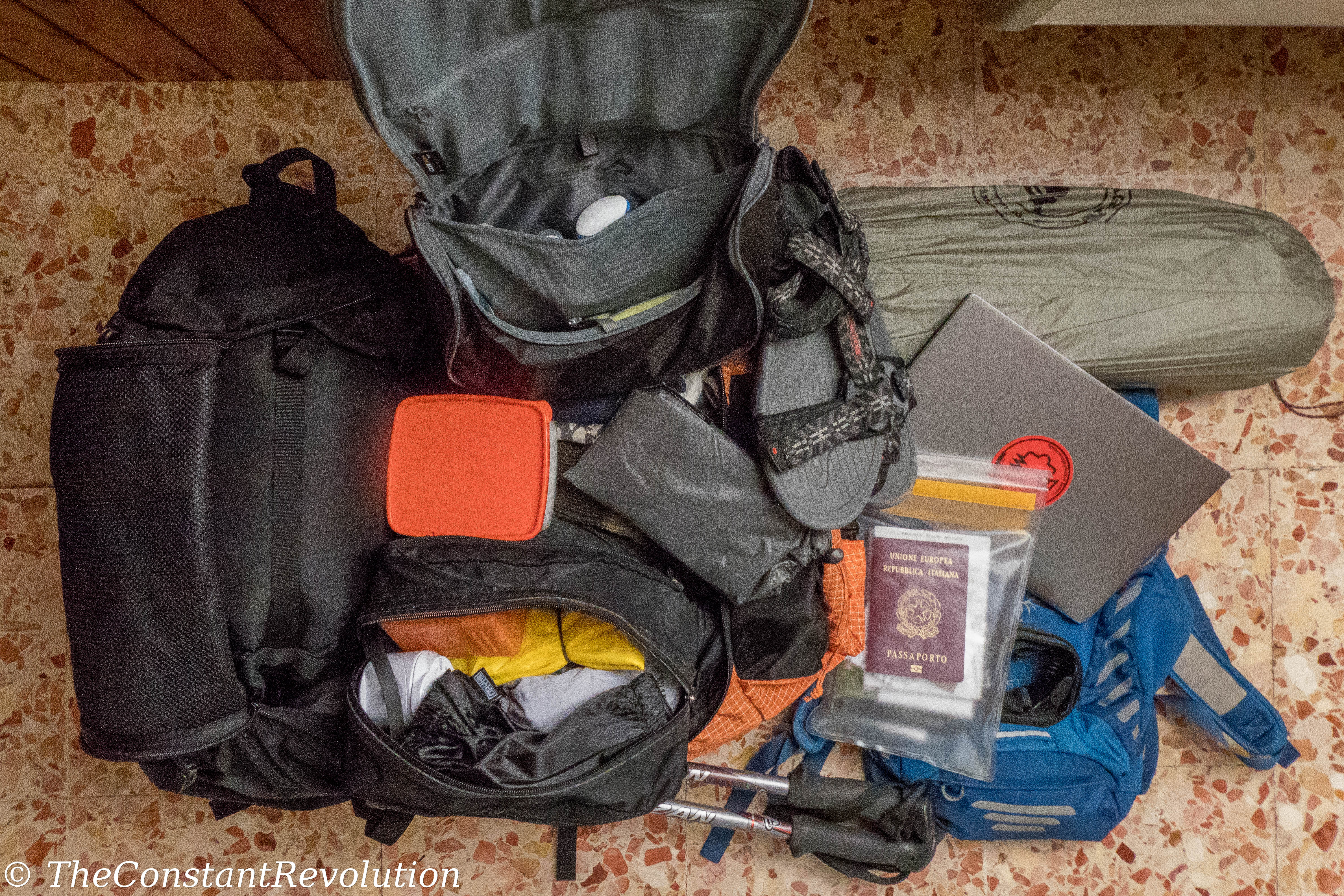Are negative feelings just bad? Or are they necessary? Perhaps there’s even beauty to find in them, if they are lived as moments of personal growth.
In time, I’ve had several occasions to talk about what I call the beauty of sadness, so I thought I would just write down what I mean by it.
The fact is that I have always been puzzled by the necessity of happiness. Ok not always, there was a time when I believed happiness was the key to happiness, so to speak, but from a certain point onward I started to change my mind about it. The problem is that we live in a society that considers happiness a social status, a kind of permanent state of emotion to be achieved and never let go. Those who do not display such state are considered kind of weird, not really integrated, in some extreme cases even outcasts. This is not always so evident, it depends of course from many other factors, and it can be hard to see. Yet, generally speaking, when it comes to western society, I find the expectation of happiness to be deeply rooted in its culture. I’ll come back to that.
At the very least a positive attitude is considered a desirable behaviour, a personal quality, especially if paired with a conforming personality. While it’s enough to have a slightly pessimistic or otherwise critical view of society, the way it works, the roles we play in it, to feel judgement upon ourselves. It is so hard not to conform. It requires strength, discipline, curiosity, a certain propensity to loneliness … and yet, it can also be so incredibly rewarding.
But I digress. A typical illustration of what I am trying to say about the necessity of happiness is under our eyes all the time. Just drop a classic how are you to a colleague, a friend, the first person you meet on the street, even family, it doesn’t matter, in most cases they’ll reply ‘fine thanks’. No matter if they are going bankrupt, or they are emotionally broken, in most cases the answer will tend towards providing a positive, cheerful image. To put it differently, there’s a certain need to conceal the negative or painful aspects of life, as if they were somehow wrong. So unreal, and yet not only accepted as normal, but an expected reaction.
Again, an experiment: for a whole day when someone asks how are you, just start talking about a problem, one at random. I do it sometimes, it’s fun! Witness the reactions: likely uneasiness, embarrassment, and a strong wish to run away from you (weirdo!) and from the conversation you are trying to pull there. Ok, this is stupid. Obviously asking someone how they are is a form of greeting and courtesy, it has nothing to do with social expectations in general, and meaningful conversations in particular, otherwise we would not be able to do anything else for the whole day, and then you don’t put your problems on other people shoulders, that’s not right, right?
Right. Yeah, well, even so, it really helps to get the gist of what I am saying here, as a mental or practical exercise. The point is that the expected reaction of the very common, very normal howareyoufinethanks situation, goes in a specific direction, the one that wants people to be fine, and happy. Society doesn’t want to hear about real life. This is a cultural trait, construed over time. It could have developed in many other ways, but it did not. That’s how it went, and that’s how it is now. And that’s why I say it is deeply rooted.
I recently read an interesting article about this topic, based on proper research, which concludes the following: “In the West…happiness and positivity are seen as virtues… Some companies want their customers and employees to be delighted all the time, that’s unreasonable, and when we’re faced with unreasonable expectations, it’s natural for us to start applying judgment to the negative mental experiences that we have.” The article is about accepting our darkest emotions, instead of seeing them as something to be concealed. Negative emotions exists, like it or not, and denying them or thinking that only positive emotions are worth displaying, naturally brings up a feeling of shame and guilt in people, as if they were doing something wrong. Those feelings are then coerced into a non-societal corner of daily experience, inevitably resulting in an unbalanced emotional life. And balance really is a key word here!
Interesting. But my idea of beauty of sadness goes a little further. For me, it’s not only about the acceptance of negative emotions as much as the idea that negative emotions are necessary. And further on, I believe negative emotions are not negative at all, they are positive in way, and beautiful.
Yeah, it sounds complicated. I am going to try and explain myself better, if I can, because this is somewhat between logic and intuition, gut feelings really.
I believe negative emotions are necessary because they are the other side of the coin, the yin to the yang, the darkness to the light. Put it as you like: one cannot exist without the other? The point is that I couldn’t know what happiness is, if I didn’t know sadness. There would be no benchmark, a way of understanding what I am feeling. We need opposites to define something: up and down, black and white, beautiful and ugly. Even if it’s just in relative terms. Emotions are no different. How could I make a distinction between opposite feelings if one does not exist, or is neglected to the point of non existence?
I don’t think I can. Negative emotions are therefore necessary to be able to feel any emotion at all. It’s impossible to live in a constant state of happiness, because that would deny a constant state of sadness, and one cannot exist without the other. Stating that someone should be always happy is a contradiction of the human condition as much as stating that someone should always be angry. That wouldn’t sound so good to anyone’s hear, while the positive feeling does. The fact that it is expected, to whatever degree, is nothing less than a collective idiosyncrasy. Plus, people who always smile really scare me.
The quest for ever lasting happiness, be it real or fictional, misreads the nature of human emotions. There’s nothing of permanence in them. Quite on the contrary, they are like instants, flashes of life breezing in like swallows at sea: quick in disappearing and as quick in returning, with no clue to whether or not they are the same as before. Emotions can be powerful: they can steer important decisions, leave long lasting memories, create bonds, but they won’t remain, in no case. Positive or negative, they are not to become a goal for life, they are to be enjoyed in life.
For some people allowing themselves to feel can be challenging. For me it is, sometimes. It is hard to let go, scary even. I guess everyone has to learn how to do this in his own terms. But I think there’s a more interesting side of it: once they’re out there, the hard part is to keep emotions in balance, every day, week, year.. without letting them devour our lives. I think everyone’s been there once or twice at least, when you can’t keep your emotions in any longer, and they burst out uncontrolled, in every direction. Love, loneliness, rage, sadness… when there’s too much of it, it can do more damage than anything else, and cause great pain.
I wonder if that happens because we are not used to show our full range of emotions, but only selected positive ones. In any case, isn’t it what’s really scary? To be so overwhelmed by an emotion, to be devoured by it, incapable to respond to it properly in a social context, or to expect appropriate responses from others, who can’t feel the same overwhelming emotions as we do in that very moment. So, I think, after we learn how to let go, how to feel all types of emotions, how not to be ashamed of them, then we need to learn how to keep them in balance. Only by keeping the right balance, an opportunity arises to actually enjoy every single moment.
This sounds like a great challenge to me. It entails exploring myself, and let myself be known by interested others. An amazing adventure, when it happens. As opposed to actually trying to be always happy. How boring that would be, how poor and deprived of the many faces of humanity. I believe that we have the right to starve for emotions, all of them, and feed on them as much as we can, as the rightful nourishment of a life worth living. It is legitimate to feel both happy and sad, because they are the same thing.
Alright, short pause. All of this could explain the need for sadness, as the necessary opposite of a single, otherwise unintelligible world, and of all other emotions for that matter. But it does not explain its beauty as such. How can I consider a so called negative feeling not only necessary, but enjoyable. In what way is sad a good thing? Necessary, yes, but good? Tricky indeed.
When I think about my past, all the times I have been sad, or depressed, for whatever reason, sometimes to the point of thinking I am going crazy, all those instants that are gone now, and are never coming back; when I think of them, I can also relate to inspiring moments of deep intimate introspection. Not easy, no. There was suffering. But through that process I had access to a new level of awareness: emotions and thoughts I didn’t even know existed, new channels on life TV.
Such events are both opportunities and dangers. The opportunity to deepen the knowledge of myself, the reality I am surrounded by, the role I play in it. The danger to get dragged into a dark place of desperation, and solitude. Quite the frightening thing. So, what to do? Well, this might sound counter-intuitive, a little like running towards the fire instead of away from it, but to avoid ending up (or getting stuck) in that place, that’s exactly what I did. I stopped fighting it, the sadness. I surrendered to it, took it all in, let it do its work, and endured.
It sounds very hard, and it is. But it is also worth it. Negative emotions are not to be denied, but to be fully embraced, with no shame. I can’t explain how to do this, I guess everyone needs to find his own way. I can only talk about the lessons I learned. What are widely considered negative emotions can be powerful agents of inspiration, creativity, and change.
To me, those were defining moments, sometimes resulting in important decisions which led to new and fantastic experiences, sometimes moving my inner self in a direction that changed forever the way I look at the world. I like to think those changes were for the better, but that’s subjective of course. They certainly helped me move forward, and towards the discovery of who I am, and who I want to be. Perhaps I didn’t become a better person, but I have become a person I like better, which is what really counts. This kind of change happened to me exclusively when enduring mercilessly acknowledged sadness, rather than during the so called happy times.
Sometimes I wonder why is that. Perhaps questioning my sadness, trying to understand why I was feeling that way, had a stronger meaning, and impact on me. Perhaps in a society where positive emotions are just taken for granted, we have a tendency to put into question only the negative ones, which therefore provide a fertile ground for personal growth. Be that as it may, I’ll be forever grateful to have been able to pay few visits to that dark place. How else was I going to know myself? Certainly not by wearing a mask in the midst of millions, and put a permanent smile on my face.
And that’s it, that’s the beauty of sadness. From this point of view, sadness is not only necessary, it is desirable. I don’t see it as a negative emotion, I just see it as an emotion, like all others, to be embraced and fully experienced, as something I can learn from. Even better than others, as only during the hypersensitivity of those moments I managed to open up new emotional channels, with everything that follows in terms of new ideas and experiences. In other words, in that dark place, during those deeply sad times, I found a way to improve myself. And that, to me, is the ultimate beauty.






Beautifully said.